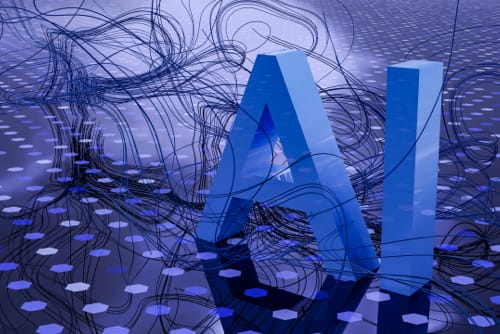The Revolution of Marketing with Generative AI: A New Era for Businesses
The keyword “Generative AI in Marketing” is currently among the most relevant search terms in the industry, reflecting how deeply this technology is transforming digital strategies worldwide. From startups to large corporations, generative AI in marketing is reshaping the way companies create content, personalize experiences, and connect with customers.
What Is Generative AI and Why Is It Disruptive in Marketing?
Generative AI refers to artificial intelligence systems capable of creating original content—text, images, audio, or even video—based on large data sets and user prompts. Unlike traditional AI, which analyzes and classifies information, generative AI creates new assets that mimic human creativity.
In marketing, this means:
- Writing high-quality ad copy in seconds.
- Generating personalized product descriptions for e-commerce.
- Designing creative visuals or videos without expensive production.
- Crafting customized messages for millions of clients simultaneously.
According to McKinsey (2023), generative AI could add between $2.6 and $4.4 trillion annually to the global economy, with marketing and sales being the most impacted sectors.
Global Companies Leading the Way
- Coca-Cola has already incorporated generative AI to create unique advertising campaigns, combining data insights with AI-generated images and slogans tailored to each market.
- Netflix uses AI to generate customized recommendations and even experiment with automatically generated promotional content for its original series.
- Unilever is testing AI-driven platforms to optimize real-time ad campaigns, cutting costs and boosting effectiveness.
These cases demonstrate how generative AI in marketing is not just an experiment but a competitive advantage.

Benefits of Generative AI in Marketing
The adoption of this technology delivers tangible results:
- Time and cost efficiency – Automating tasks that previously required large creative teams.
- Advanced personalization – Reaching each consumer with a message tailored to their tastes, behaviors, and context.
- Scalability – Creating thousands of variations of ads, descriptions, or campaigns in multiple languages at once.
- Data-driven creativity – Combining AI’s power with insights from consumer data to increase campaign relevance.
A study by PwC (2023) revealed that 73% of CMOs consider AI essential for competing in the next 3 years.
Challenges and Ethical Considerations
However, generative AI also raises questions about intellectual property, transparency, and the risk of over-automation. Consumers still value authenticity, and brands must find a balance between automation and human creativity. Regulatory bodies in the EU and the U.S. are already working on frameworks to ensure responsible use of this technology.
The Future of Generative AI in Marketing
By 2026, Gartner estimates that over 80% of companies will have integrated generative AI into their marketing strategies. This will include:
- Fully automated content generation pipelines.
- Virtual assistants capable of designing entire campaigns.
- Integration of AI into CRM systems for hyper-personalization.
Emerging markets like Latin America and Southeast Asia are also expected to benefit, where SMEs could leapfrog traditional methods by adopting these tools earlier.
Conclusion: A Revolution That Cannot Be Ignored
Generative AI in marketing is no longer a future possibility—it is a reality transforming industries today. Companies that adopt it now will not only save time and costs but also build stronger, more personalized, and more profitable relationships with their clients.
For those who hesitate, the risk is clear: falling behind in a market where innovation and adaptability are key to survival.
Generative AI in marketing is here to stay. The question is not whether to adopt it, but how quickly companies can do so to lead in this new era of business transformation.

